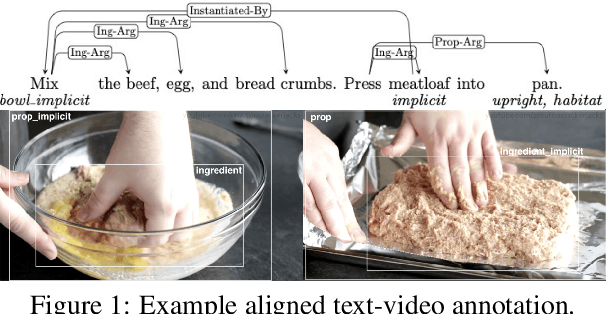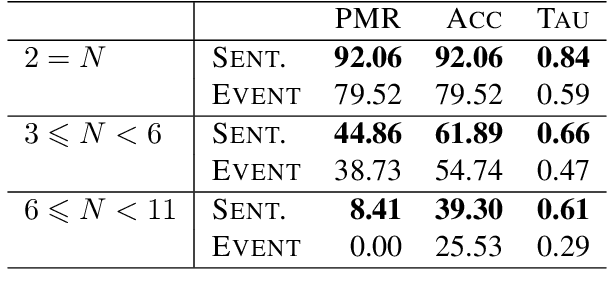Richard Brutti
Common Ground Tracking in Multimodal Dialogue
Mar 26, 2024



Abstract:Within Dialogue Modeling research in AI and NLP, considerable attention has been spent on ``dialogue state tracking'' (DST), which is the ability to update the representations of the speaker's needs at each turn in the dialogue by taking into account the past dialogue moves and history. Less studied but just as important to dialogue modeling, however, is ``common ground tracking'' (CGT), which identifies the shared belief space held by all of the participants in a task-oriented dialogue: the task-relevant propositions all participants accept as true. In this paper we present a method for automatically identifying the current set of shared beliefs and ``questions under discussion'' (QUDs) of a group with a shared goal. We annotate a dataset of multimodal interactions in a shared physical space with speech transcriptions, prosodic features, gestures, actions, and facets of collaboration, and operationalize these features for use in a deep neural model to predict moves toward construction of common ground. Model outputs cascade into a set of formal closure rules derived from situated evidence and belief axioms and update operations. We empirically assess the contribution of each feature type toward successful construction of common ground relative to ground truth, establishing a benchmark in this novel, challenging task.
Designing Multimodal Datasets for NLP Challenges
May 12, 2021



Abstract:In this paper, we argue that the design and development of multimodal datasets for natural language processing (NLP) challenges should be enhanced in two significant respects: to more broadly represent commonsense semantic inferences; and to better reflect the dynamics of actions and events, through a substantive alignment of textual and visual information. We identify challenges and tasks that are reflective of linguistic and cognitive competencies that humans have when speaking and reasoning, rather than merely the performance of systems on isolated tasks. We introduce the distinction between challenge-based tasks and competence-based performance, and describe a diagnostic dataset, Recipe-to-Video Questions (R2VQ), designed for testing competence-based comprehension over a multimodal recipe collection (http://r2vq.org/). The corpus contains detailed annotation supporting such inferencing tasks and facilitating a rich set of question families that we use to evaluate NLP systems.
 Add to Chrome
Add to Chrome Add to Firefox
Add to Firefox Add to Edge
Add to Edge